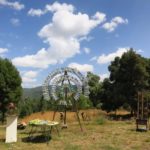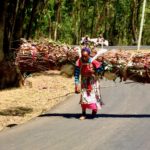Everyone knows that you don’t get a true sense of a country by simply visiting its capital city. And for that, I ventured on a 13-hour bus ride up north, to see the ancient capital of Gondar, Ethiopia. It was an incredibly nostalgic ride as I had spent many hours of my Peace Corps service on similar journeys.
We got on the bus at 5:30am. The sun has yet risen. I fell into a deep nap, and then I woke up to the beautiful rugged view of dry season in Africa. Wide open landscape with huts nestled within, occasional villagers working hard. Every now and again, we pass by a bustling of activities that mark the village or town center. I was nostalgic. In Cameroon, my village also situated on a road between two big cities. Any one of these village hubs that we passed through could have represented mine. How surreal that once upon a time, this was my life.
As the bus sped along, Ethiopian music is blaring on the sound system. Every few hours, the guy switches things up and play an Ethiopian film for our entertainment. Noise seems to be the common theme to African land travel. I was grateful that at least no medicine men were on board to sell god-knows-what meds over a loud speaker. This was a common practice on long bus journeys in Cameroon.
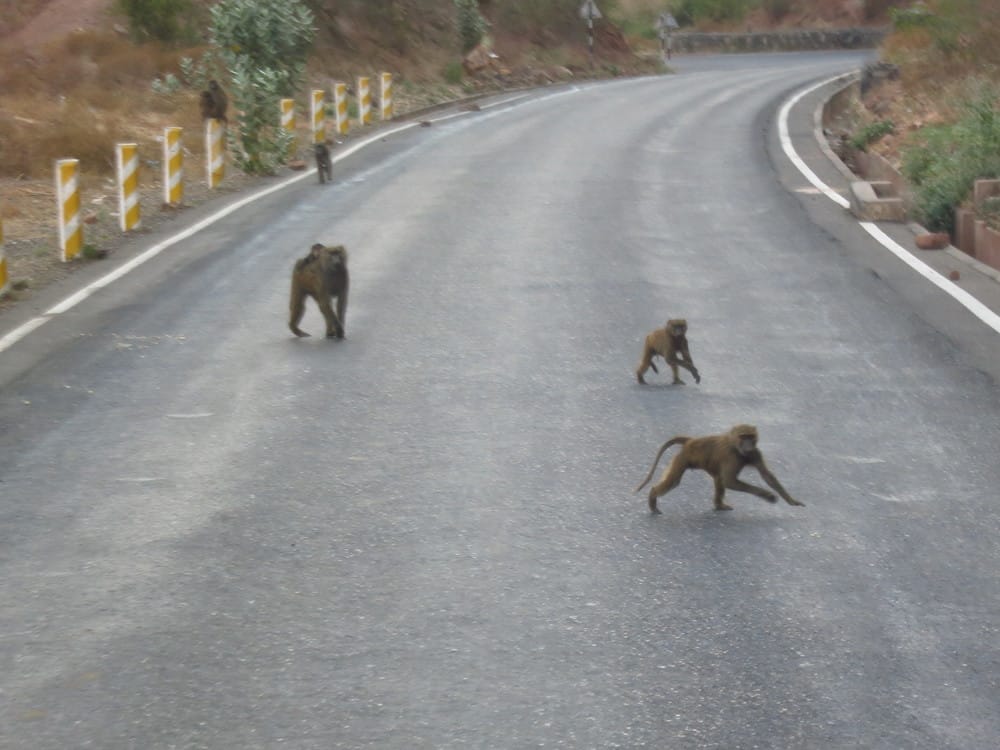
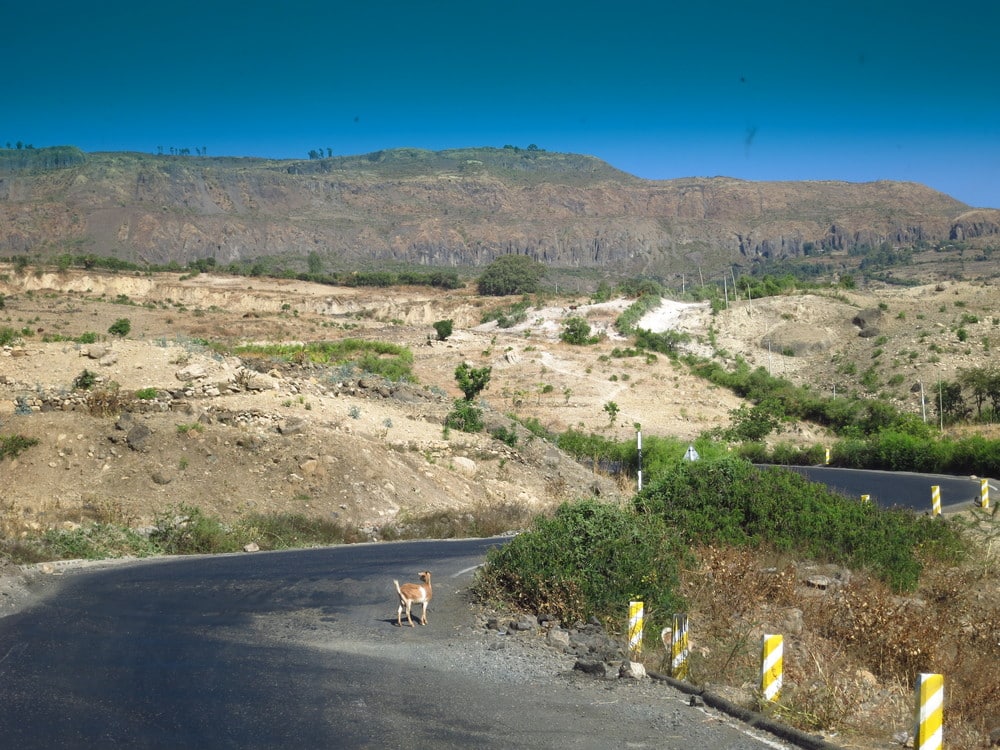
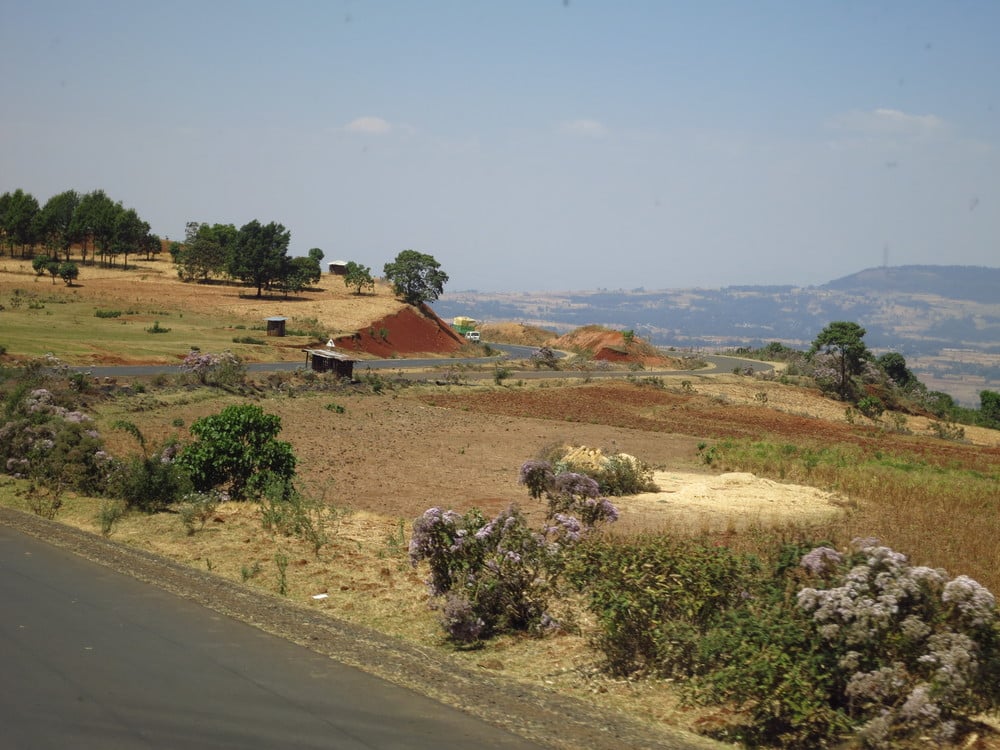
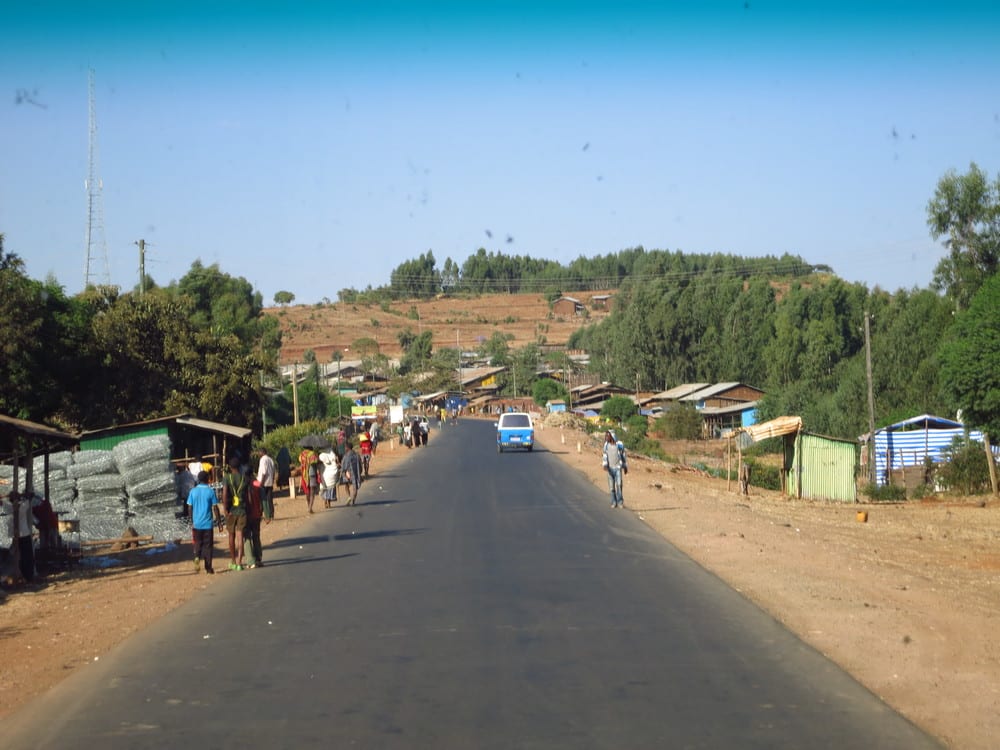

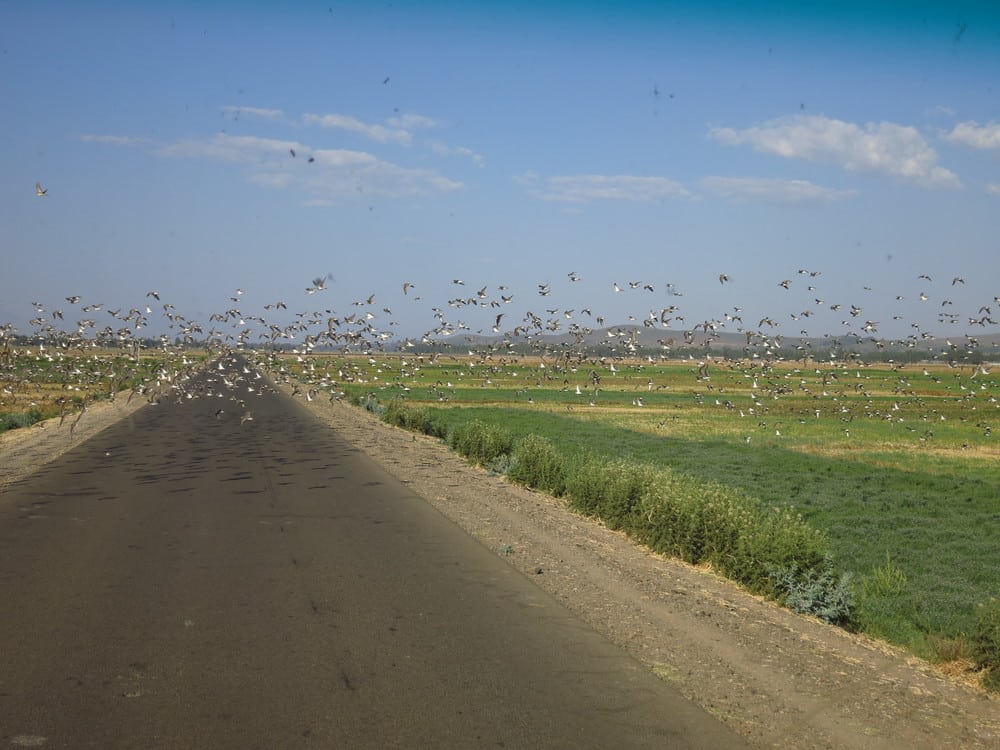
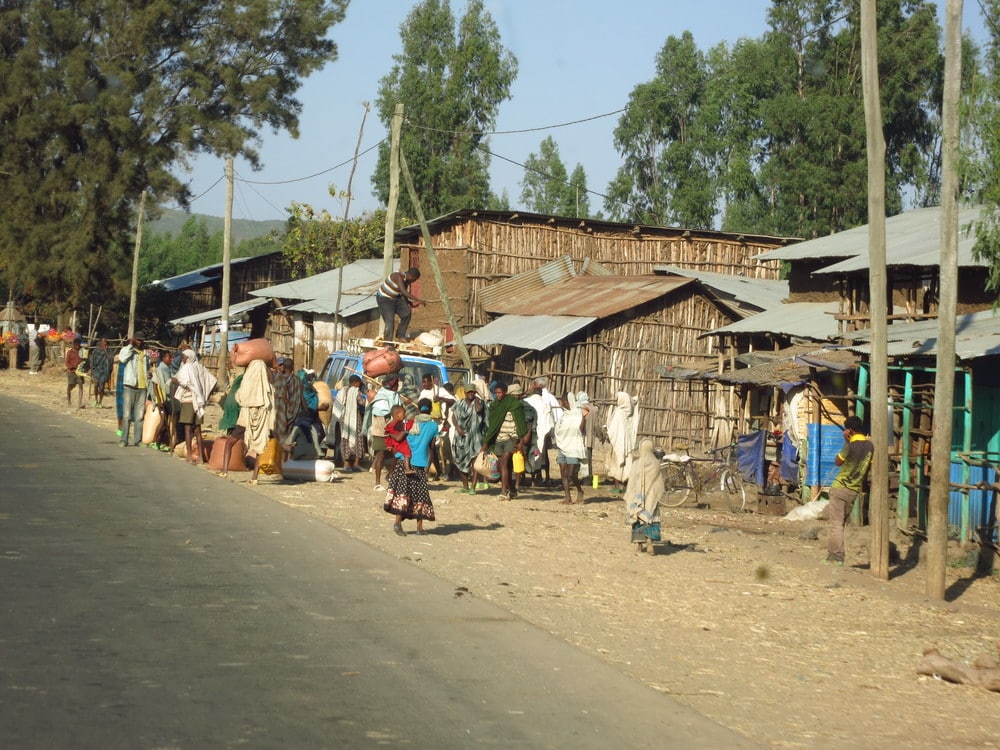
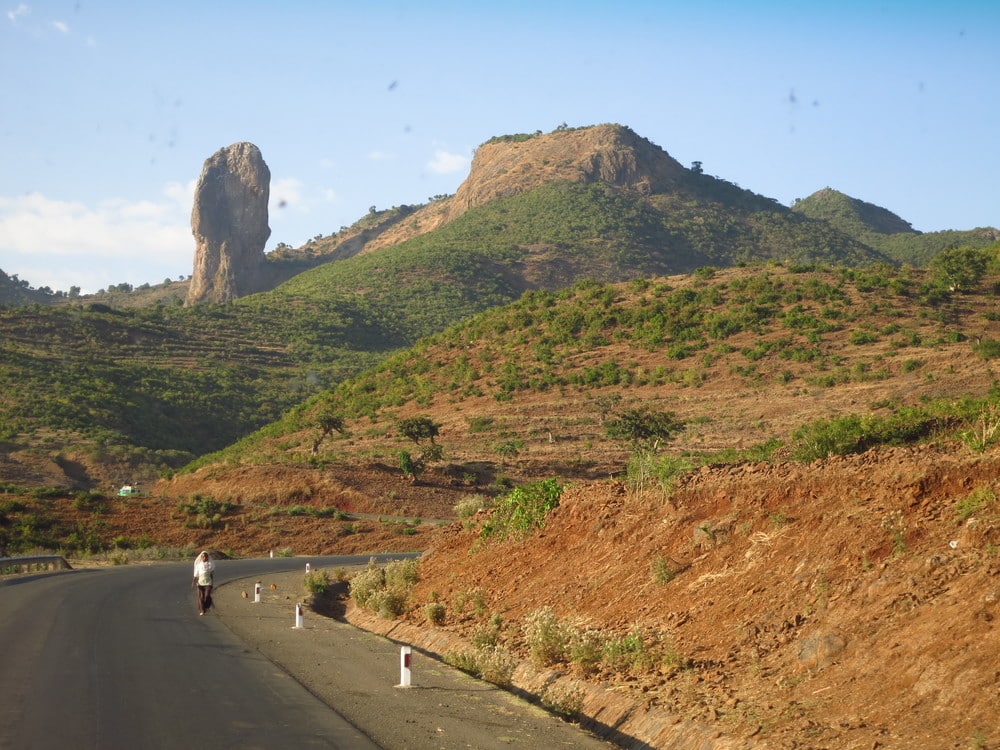
Unlike Cameroon, I was amused at how many different kinds of animals would cause our bus to slow down, or even to stop. First came the monkeys, then the various herds of cows, goats, donkeys, and at one point, and impressive flock of birds flew in front of us. I was grateful for this long bus ride. We could’ve easily flown (for a much higher price), but you know what they say, traveling isn’t about the destination, but the journey.
I ponder as we drove by farmers carrying stacks of hay, or boys who herd the cows or the goats. What are their stories? I smile each time kids excitedly wave at the bus as we pass by. How many buses a day do they see? Do the kids go to school? How do the women provide for her family?
The perspective is so important. My life in Shanghai seem like a dream, one that I am not quite sure exists. During this trip, I read Elizabeth Gilbert’s book, “Committed.” Within it, she discussed her partner’s style of travel.
Given a choice, he will always select a lifestyle of routine, familiarity and reassuringly boring everyday practices. All of which might make you assume the man is not fit to be a traveler at all. But you would be wrong to assume that, for here is Felipe’s traveling gift, his superpower, the secret weapon that renders him peerless: He can create a familiar habitat of reassuringly boring everyday practices for himself anyplace, if you just let him stay in one spot. He can assimilate absolutely anywhere on the planet in the space of about three days, and then he’s capable of staying put in that place for the next decade of so without complaint.
And for the first time, I realized someone described precisely how I travel. People used to refer to me as “Posh Corp” back in the days. Precisely because given the choice, I prefer the finer things in life. But I also can assimilate like none other. I want to learn the local language. I want to become one of the communities. I ask such questions as how the women support her family whilst on the road. It is precisely this level of assimilation that sometimes results in identity crises. Small price to pay for the opportunity to look deeply into a culture.
The journey towards the destination not only was fascinating, but also meditative. Unlike MegaBus, there was no wifi, no 3G service. For the first time in years, I travel in peace, disconnected from the world. Just me, and my thoughts, and the Ethiopian music on the background. As the world advances, and connectivity surges, this form of solitude becomes rare. Life is about tradeoffs. I enjoy being ultra connected as the next modern global citizen, but I do cherish these hours of journey, basking in solitude.

